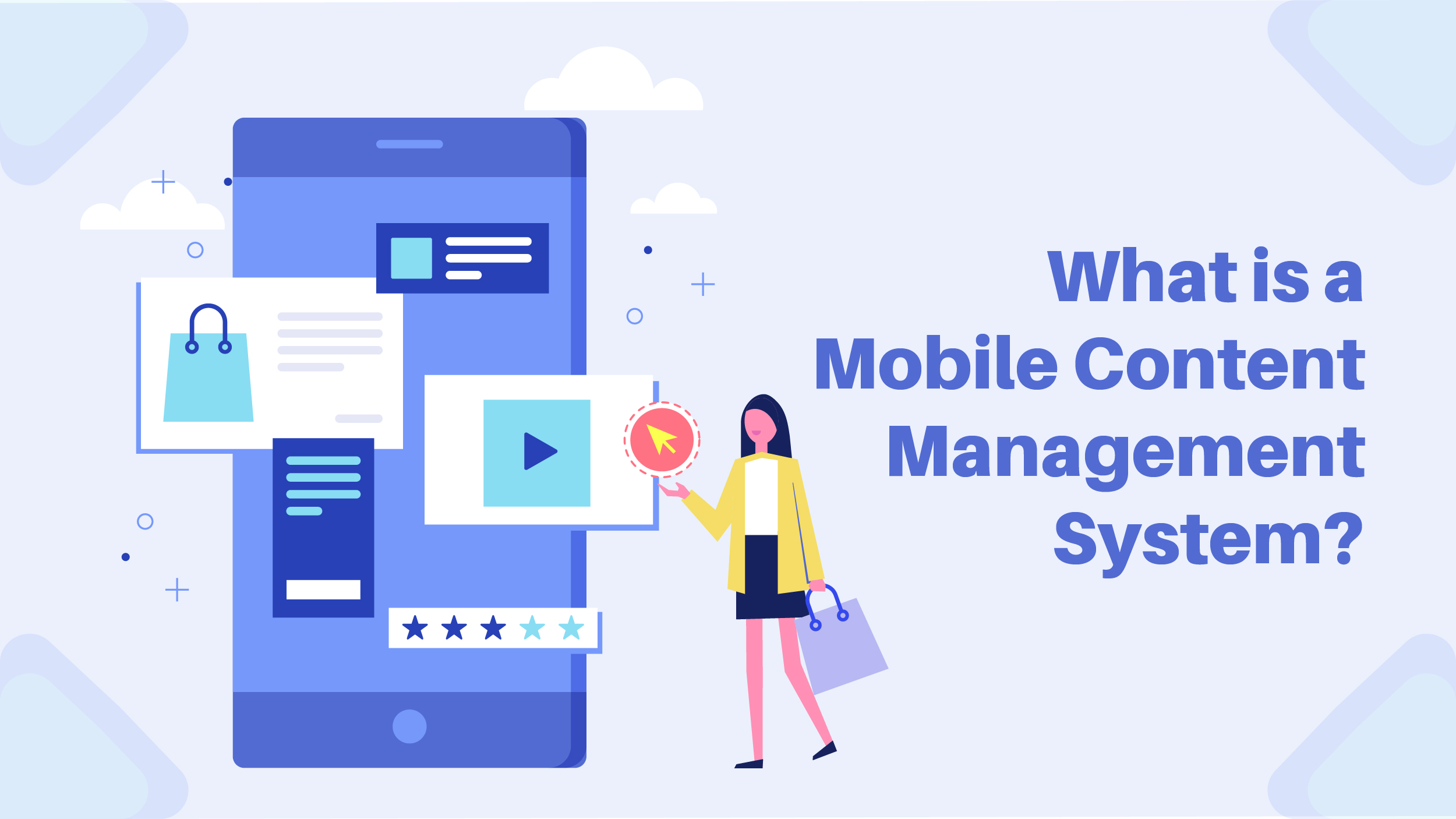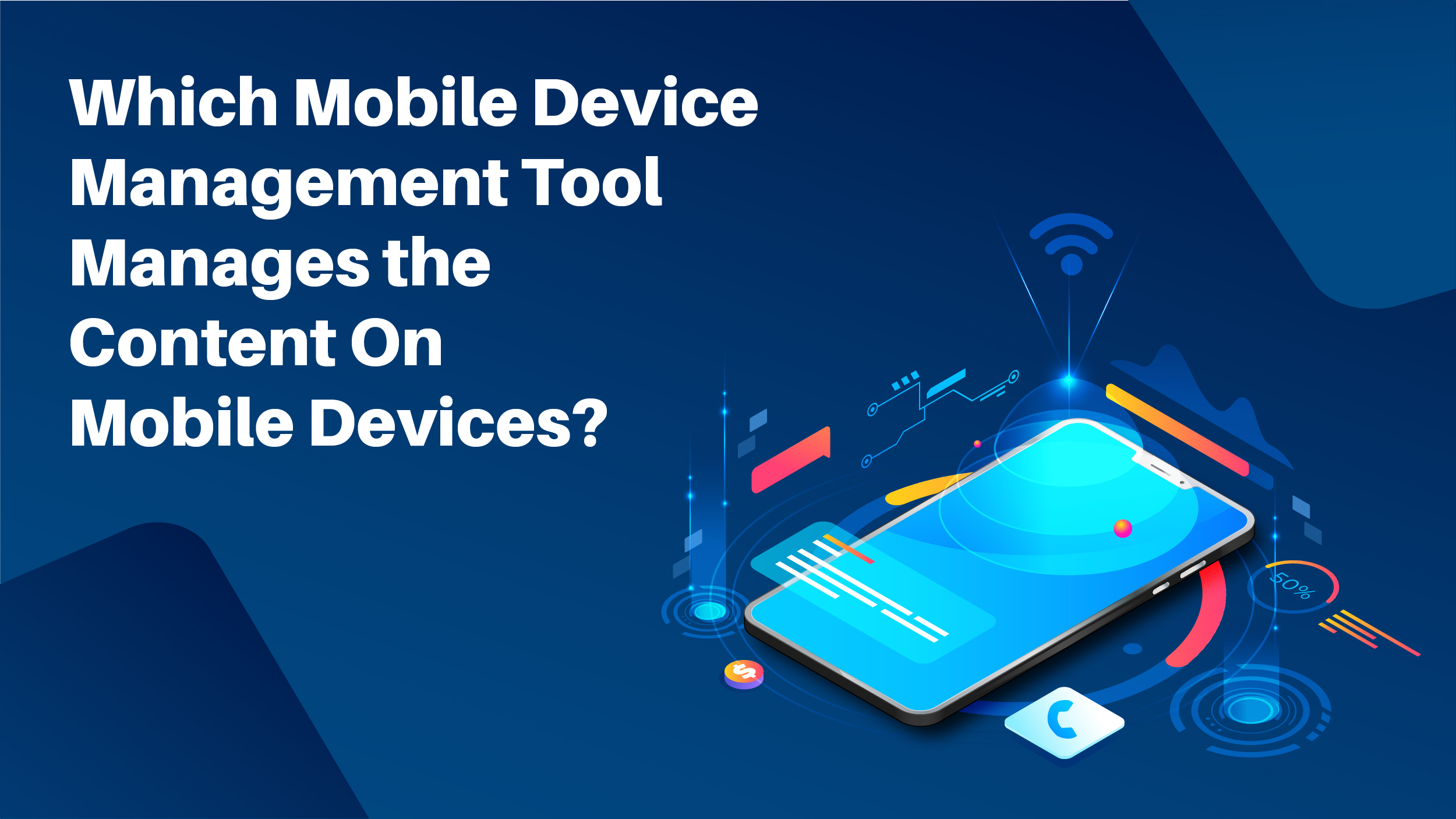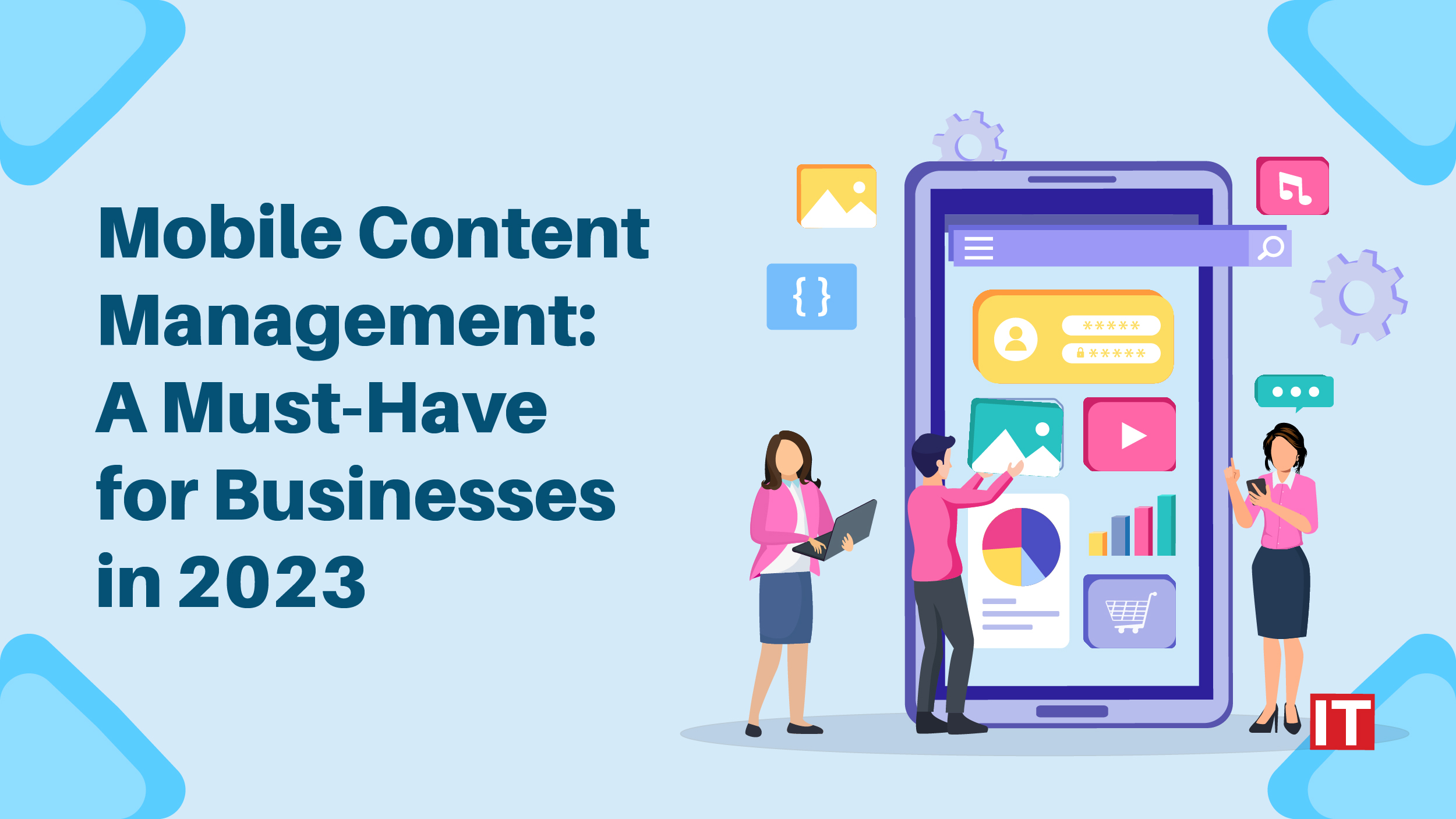Mobile content management (MCM) has become an integral part of our everyday lives. Our smartphones are not just for making calls and sending text messages. They are now our primary source of information, entertainment, and productivity.
Every day, 6.5 million mobile users access content. The decision to follow this new trend involves a great deal of responsibility.
A separate content management system is now necessary due to the exponential expansion and sophistication of mobile devices as well as the increase in demand.
Since nearly 53% of employees are not productive, businesses need to implement modern technology to increase staff productivity. Sensitive corporate data can be safeguarded and made available to the workforce via a secure mobile content management system, which will increase business efficiency.
In this blog, we have discussed all about mobile content management systems and why is it crucial for businesses.
What is a Mobile Content Management System?
 A CMS that distributes content and services to mobile devices is known as a mobile content management system (MCMS). It enables the centralization of content management and storage, enabling access to and distribution to and from approved mobile devices. Mobile CMS solutions make guarantee that confidential information is protected and that only approved applications can see, transfer, or store the data.
A CMS that distributes content and services to mobile devices is known as a mobile content management system (MCMS). It enables the centralization of content management and storage, enabling access to and distribution to and from approved mobile devices. Mobile CMS solutions make guarantee that confidential information is protected and that only approved applications can see, transfer, or store the data.
In the past, businesses would have to create separate mobile websites or apps for their employees to use. However, with the rise of mobile content management, businesses can now easily deliver content to their employees’ devices through a single, unified platform.
Mobile content management system software has several benefits, including:
- Increased productivity: Employees can access the information they need when they need it, regardless of their location.
- Improved security: Mobile content management platforms can help businesses to secure their content and prevent unauthorized access.
- Reduced costs: Businesses can save money by eliminating the need to create and maintain separate mobile websites or apps.
- As the use of smartphones continues to grow, mobile content management is becoming increasingly important for businesses of all sizes. By implementing a mobile content management platform, businesses can improve the productivity of their employees, secure their content, and reduce their costs.
What are the Key Features of Mobile Content Management?
Depending on the provider, an MCM solution may offer a different set of functions. Unified endpoint management (UEM) solutions occasionally include integrated content management services. However, some functions are regarded as being necessary for any content management system.
Multi-channel Content Delivery
The majority of mobile content management systems feature a central content repository, which essentially means that all the data is kept in one location. The days of storing data on local storage are long gone. Large-scale cloud storage systems are used by 86% of businesses, which demonstrates just how well-liked the cloud is. The cloud service should still be used along with backup storage since once a file is erased from the cloud, it is lost.
Distribution of content into different devices
Not every employee in an organization needs to have access to corporate content. One of the fundamental functions of MCMs is “Access has to be granted to employees based on their privileges.” Depending on the employee’s privilege level, an MCM may be used to deliver corporate content.
Organizing work content
While it is practical to access corporate data on a personal device, there are risks involved. Your gadget is a weak point and a prime target for data breaches. Businesses would be highly unwise to believe that their staff members would handle company information with the utmost care. People tend to overlook how easily information may be stolen rather than do it on purpose. Do you remember the times an app requested access to your storage? Yes, that effectively gives the program access to all of your files. You won’t have to worry when using your device for personal purposes because a work container will separate the professional stuff from your content.
Which Mobile Device Management Tool Manages the Content On Mobile Devices?
 Many mobile device management (MDM) tools provide some kind of content management functionality. The Mobile Device Manager Plus from ManageEngine is one such MDM tool that especially handles content on mobile devices. It is a complete MDM solution that includes mobile content management capabilities that manage and secure devices, apps, and data from a single console. It’s important to keep in mind, though, that other MDM programs also provide content management functions, such as file sharing, document management, and collaboration tools. Therefore, it’s critical to compare the characteristics of several MDM solutions to identify the one that best suits your organization’s unique content management requirements.
Many mobile device management (MDM) tools provide some kind of content management functionality. The Mobile Device Manager Plus from ManageEngine is one such MDM tool that especially handles content on mobile devices. It is a complete MDM solution that includes mobile content management capabilities that manage and secure devices, apps, and data from a single console. It’s important to keep in mind, though, that other MDM programs also provide content management functions, such as file sharing, document management, and collaboration tools. Therefore, it’s critical to compare the characteristics of several MDM solutions to identify the one that best suits your organization’s unique content management requirements.
Some of the prominent mobile content management system software available are Get App, Source Forge, and Capterra.
What are the Features to consider while choosing an MCM for your business?
- Flexibility in File Sharing
A smooth team cooperation between two separate contexts is the main goal of mobile content management. A top-notch MCM system should be adaptable enough to distribute different files with ease. As a result, be careful to choose a service provider with flexible file-sharing capabilities.
- Dependable security
Security is the top priority whenever there is data. To safeguard crucial information, an effective mobile content management system should provide security assistance and encrypt sensitive data.
- Control admins
Administrators are crucial to any CMS. As a result, an effective mobile content management system should be able to grant administrators remote access. The access provides the ability to add, duplicate, edit, and rearrange content.
Final Thoughts on Mobile Content Management
Globally, mobile content management system software has emerged as a critical component of commercial operations. These technologies aid in the effective and safe dissemination of information as more businesses use mobile devices to improve their work processes. The solutions provide central content storage, allowing authorized personnel to efficiently access and share information on their mobile devices. By guaranteeing that data encryption is in place and that only authorized applications may access or communicate specific data, mobile content management solution providers ensure the protection of sensitive data. The productivity of managing mobile material can be greatly increased while maintaining the security of sensitive data by selecting a reputable mobile content management solution.


Comments are closed.